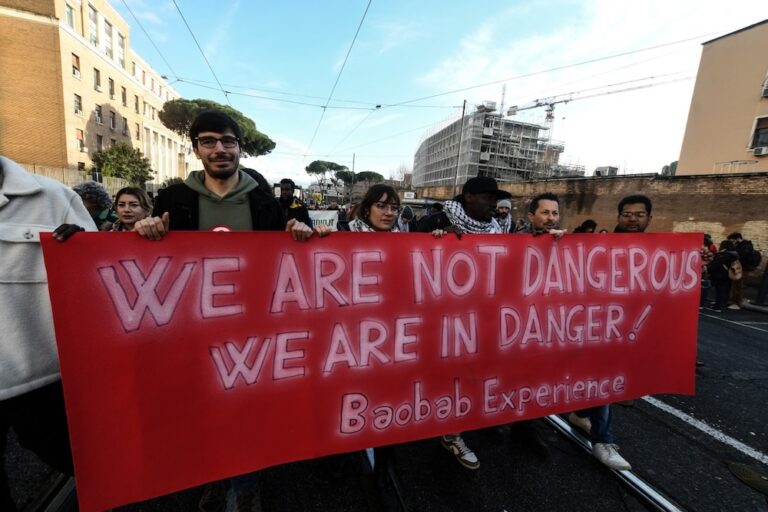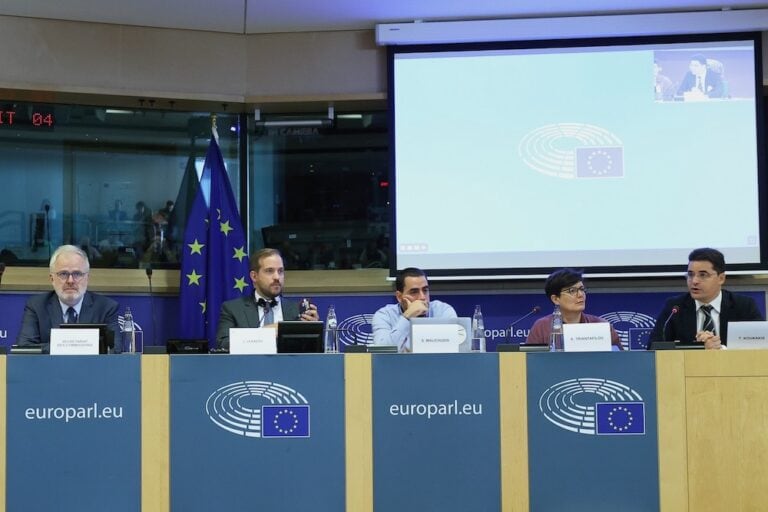Three Google executives were found guilty of violating the privacy of a handicapped teenager by allowing a video of him being bullied to be posted on Google Video in 2006.
(RSF/IFEX) – Reporters Without Borders is very concerned about the six-month suspended jail sentences which a Milan court passed on 24 February 2010 on three Google executives after finding them guilty of violating the privacy of a handicapped teenager by allowing a video of him being bullied by classmates to be posted on Google Video in 2006.
The case was brought by the city of Milan and Vividown, an NGO that defends people with Down’s syndrome. Issuing its verdict, the court ruled that ‘the right to operate a company cannot take priority over personal dignity.”
“We obviously condemn the dissemination of such a video but the guilty parties are those who did the bullying and those who filmed it and posted it online, and they have already been convicted,” Reporters Without Borders said. “Google quickly withdrew the video after being told of its existence. If the judges intended to start a debate about respect for privacy online, an important issue, they chose the wrong case to make a stand.”
The press freedom organisation added: “The practical effect of this conviction is to require websites to exercise prior control over the videos that are being posted. This is a serious blow to freedom of expression and its symbolic impact is all the greater for having taken place in a democratic country.”
The video, which was 15 seconds long, remained for two months on Google Video, where it was quite popular. It was withdrawn by site administrators shortly after it had been identified to them as content that would be regarded as shocking. Google Video was Google’s main video-sharing platform until it bought YouTube.
This is the first time that Google executives have been convicted on charges of this kind anywhere in the world. The three executives convicted in this case are David Drummond, the head of Google Italy at the time, George De Los Reyes, a member of the Google Italy board at the time (who has since retired), and Peter Fleischer, Google’s chief privacy counsel.
While convicting them of violating Italy’s privacy laws, the court acquitted them of defamation. They were not ordered to pay damages because the claim made by the city of Milan and Vividown was based solely on the allegation of defamation.
Google Italy spokesman Marco Pancini called the verdict “an attack on online freedom and the fundamental principles that are at the basis of the Internet.” The ruling could force Google to introduce prior moderating on YouTube or block access to YouTube in Italy. Its blog platform Blogger and other services could also be affected.
In France, websites are not required to filter content in advance but any content that breaks the law must be withdrawn within 24 hours of its being reported. The company hosting a website can be prosecuted if it fails to act when notified of illegal content.
This is not the first time that online free expression has been threatened in Italy.
The 24 February conviction comes amid a debate about a proposed government decree that communications undersecretary Paolo Romani submitted to parliament last month. It would require all websites showing videos to obtain a licence from the authorities, thereby imposing a system of prior authorisation on the exercise of free expression.
On the grounds of protecting copyright, including the copyright of TV stations owned by Prime Minister Silvio Berlusconi, the government would give itself direct control over independent web TV and online video sites, whose continuing existence would depend on a licence issued by a government minister and not by a judge.
This decree and the 24 February court ruling seem to augur a preventive approach in Italy to the exercise of online free expression.


